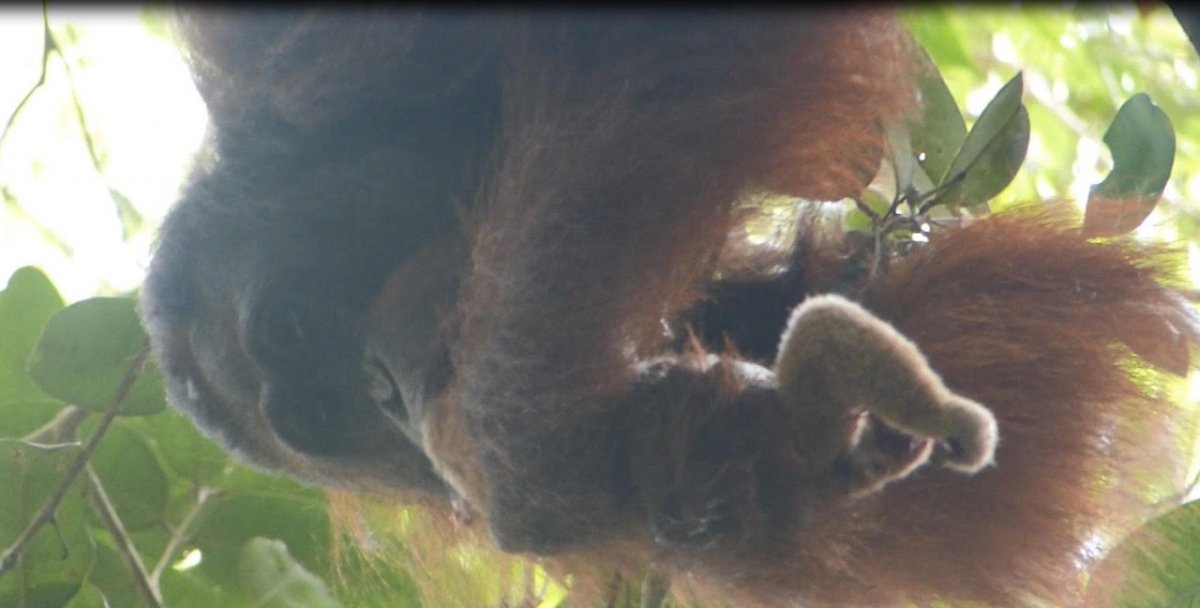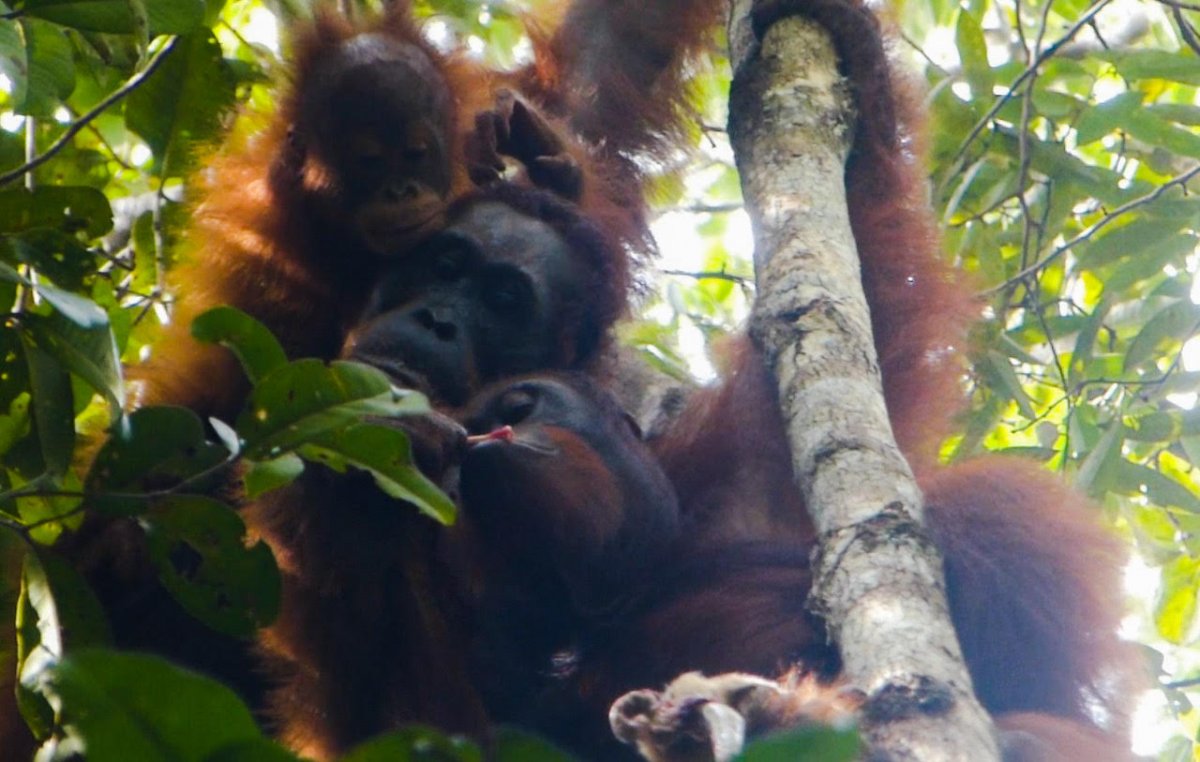A Bornean orangutan has been filmed eating a slow loris—the first time this behavior has been seen in this population of orangutans.
Orangutan diets are composed primarily of fruit. they also eat leaves, bark, flowers and insects. In 2012, scientists announced Sumatran orangutans had been observed consuming slow lorises, a small species of primate that has become an internet favorite, with their huge adorable eyes and fluffy little bodies.
Three years later, a different team of researchers announced the first evidence of meat consumption by a wild Bornean orangutan. In this study, an adult male was observed eating a horse-tailed squirrel carcass.
Now, a team of scientists from Indonesia, Switzerland and the U.S. has presented the first known case of a Bornean orangutan eating a slow loris. Findings were published in the journal Primates.
Pictures and video of the event show a male orangutan catching and eating the slow loris. The video can be viewed here.
He spotted it on some lower vegetation and moved down towards it. He then moved back up, potentially to get another look at it. "[He] then went back down and just broke the branch off that it was clinging to," study author Erin Vogel, from the State University of New Jersey, told Newsweek. "This was unique and very exciting. Then he bit the neck while holding the body of the loris to kill it."

The orangutan ate the slow loris' head first. A female and her baby that were nearby made their way over to the male and occasionally appeared to beg him for some of the food, but he refused.

The event was recorded as part of an observation program at the Tuanan Orangutan Research Station. Vogel said there was nothing unusual about the orangutan's behavior before or after ate the slow loris. "We think he saw the loris during the day, and took the opportunity to catch and eat it. A great protein packed meal," she said.
Slow lorises are the only venomous mammal in the world and their bite can rot flesh. When the first study into orangutans eating slow lorises was published, the authors did not notice any wariness of the risk posed by the slow lorises. They also found the three predation events took place when there was not much fruit available. As a result, they supposed orangutans use meat as a "fallback food" when their primary source is unavailable.
Vogel said she doesn't think a lack of food drove the Borneon orangutan to kill and eat the slow loris. "This was not a low fruit period and we do not think this orangutan was systematically searching for meat," she said. "Meat-eating by orangutans is very rare. We have not observed them to hunt or eat other primates. Thus, lorises are the only other primates that orangutans have been observed to eat. And slow-loris consumption is rare in both Bornean and Sumatran orangutans."
What drove this orangutan and others to eat slow lorises is now the subject of research. Vogel said they plan to carry out slow loris density surveys at the site and install camera traps.
"I always say 'absence of evidence is not evidence of absence' in behavioral data collection," she said. The team had not been systematically searching for this behavior and they did not observe the orangutans at night, so it is unclear exactly how often slow lorises and orangutans encounter one another.
Sumatran orangutans may have more contact with slow lorises, which is why there are more cases of them eating these little primates. "It has been suggested that in Sumatra, this is a learned behavior," Vogel said. "For several of the published cases in Sumatra, and the three most recent ones, they were all by the same mother and offspring pair. So, this behavior could be learned or the mother likely has developed a search imagine for lorises. But again, this could need to be tested."
Orangutans tend to eat the same foods when they are available, with very little shifts in their diets. Vogel said fires have affected the availability of fruit for some orangutans: "The habitat at Tuanan is changing, with fires and the road development, but we do not yet know how this affects the diet. Only long-term data will answer these questions."
Uncommon Knowledge
Newsweek is committed to challenging conventional wisdom and finding connections in the search for common ground.
Newsweek is committed to challenging conventional wisdom and finding connections in the search for common ground.
About the writer
Hannah Osborne is Nesweek's Science Editor, based in London, UK. Hannah joined Newsweek in 2017 from IBTimes UK. She is ... Read more
To read how Newsweek uses AI as a newsroom tool, Click here.








